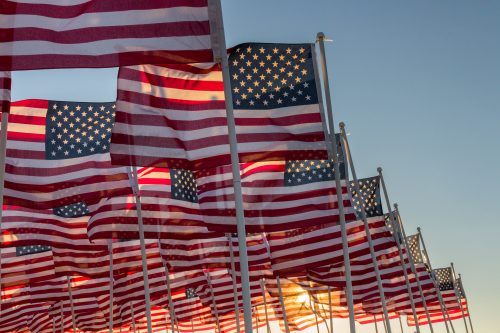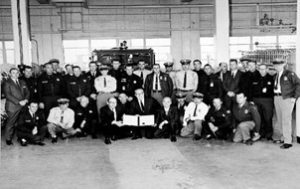
CWP Blog | CWP
Talk to Terrie: Workers Prevent Chernobyl-like Catastrophe – Part 2
May 25, 2021
May 25, 2021
CWP
CWP Blog
May 11, 1969 wasn’t a normal Mother’s Day. Although most of Denver, CO and surrounding suburbs did realize it or fully grasp the danger, a fire broke out at the Rocky Flats plant. The facility was only manned by a skeleton crew because of the holiday.
Plutonium can combust spontaneously. Plutonium fires were not uncommon at Rocky Flats and workers knew how to extinguish them by covering the smoldering metal chip in sand or placing it in machine oil. Workers were instructed to never use water to douse a plutonium fire as it could result in the deadly “blue flash” or a criticality accident.
There were no fire alarms in the glovebox systems spanning Buildings 776 and 777. Automatic sprinkler systems were obviously not installed because of the fear of a criticality. The 1.5 kg. piece of scrap metal which spontaneously combusted, therefore, went unnoticed. The fire was finally noticed at 2:27 pm when the heat detectors finally trigger an alarm at the fire station.
Full Body Burden by Kristen Iversen records the memories and emotions of some of those who fought this fire. The first firemen on the scene, including the Captain, Wayne Jesser, attempted to put out the fire using carbon dioxide canisters. The CO2 had little effect on the flames. The buildings were also filled with black smoke from the Plexiglass and Benelex shields being on fire and the various other chemicals which were present in the buildings. When they left the building to get more CO2 canisters, the radiation monitor refused to let them back into the building because they were so contaminated.
Bill Dennison, who helped fight the fire in 1957, and Stan Skinger were two of the guards coming in for their normally scheduled shift. They were notified that they needed to assist in fighting the fire. Although they had no formal training as firefighters, they suited up and entered the buildings to do what they could.
Workers fought the fire for 4 hours. When nothing else worked they resorted to fighting the fire very carefully with water. The firefighters ran into a bit of luck when a fire truck backed into a power pole and cut electricity. This caused the fans to stop drawing the flames into the filtering system. That didn’t stop the fire immediately but fighting the fire was now more manageable.

Forty years later, in 2009, then-Congressman Jared Polis commemorated the forty-some Rocky Flats workers who helped save Denver and surrounding communities from a disaster.
I urge my colleagues to take a moment to remember the risks and sacrifices made by heroic men and women in our nation’s nuclear production facilities, which were located in virtually every State in the country, and to pass this historic piece of legislation.
